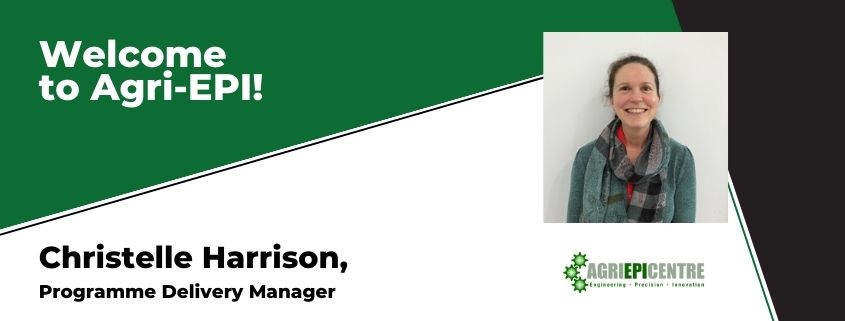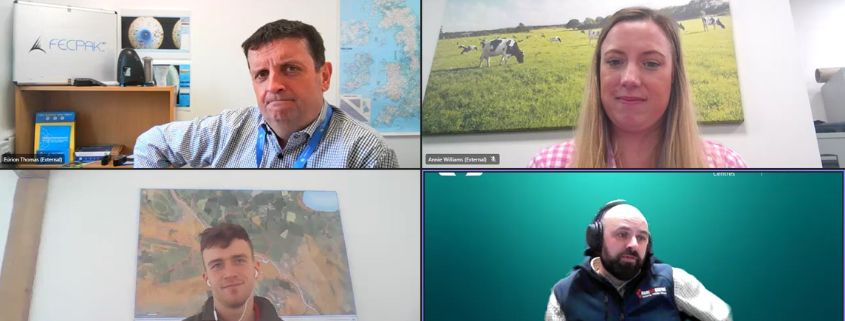Connecting tech innovators with agriculture
Agri-EPI’s team of experts helps start-ups and tech innovators with a proper research trials setup by brokering relationships with relevant parties, with a representative sample, in a commercially relevant setting.
You’ve spent months, years, and maybe even decades, taking an extraordinary idea from a concept to a prototype. Whether your innovation is a sensor, a feed additive, a diagnostic, a biological solution, a change in animal management or anything else, your end-users are going to want to know that they’re buying into a tried and tested product, service, or model.
Most tech developers will be familiar with the Technology Readiness Level (TRL) scale – developed by NASA during the 1970’s, the scale allows innovators to track the maturity of technology. The scale stretches from 1-9 with 9 being the most mature, and requires the prototype to be validated and demonstrated in a relevant and operational environment during levels 5-7. During TRL 9, the final product should be demonstrated to have operated successfully in the environment for its intended use.
What is the challenge?
For a technology company with no former experience in the agriculture sector, finding access to the suitable farm environment on which to undertake research, trials and demonstrations can often prove impossible. First and foremost, farms are places of business via which livelihoods are made – understandably, farmers can be less than forthcoming with their desire to get involved with anything that could adversely affect their bottom line. Furthermore, farms can be dangerous settings with heightened biosecurity measures to boot. Operating technology in such a setting should be the job of an expert.
Knowing which farm type to work with for trials, validations and demonstration purposes will be key to achieving the desired outcome. You’ll want to ensure a representative sample has been used, in a commercially relevant setting. Agri-EPI’s team of experts can help guide you to achieving just this, brokering relationships with the relevant parties along the way.
Validating and demonstrating agricultural technologies
We’ve broken this section down into three helpful sections to help you understand and decide the best path forward for your innovation at its current stage of maturity:
- Anecdotal Trials: for innovations at TRL 4/5
This stage isn’t crucial but can give innovators extra piece of mind that their technology is making some kind of positive difference at a farm-level before they invest in further work. Gathering anecdotal evidence will likely involve asking personal connections to engage with your innovation and report back any noticeable changes to production. - Commercial Farm Trials: for innovations at TRL 5-7
This stage is vital for those required to understand more precisely the impact of their innovation on production. During commercial farm trials, data for a particular set of parameters will be collected and should be analysed to determine any changes. On most commercial farm settings, projects are at risk of disruption from everyday occurrences such as a change in animal feed or labour providers. - Research Farm Trials: for innovations at TRL 5-9
Undertaking trials, validations and demonstrations via research units ensures a level of control beyond that which can be achieved on a commercial farm setting. For example, animals will be carefully grouped into representative samples and groups maintained under identical environmental settings. Research level projects are the only way to produce robust results with which to scientifically validate technology.
Conducting research farm trials with the Agri-EPI Farm Network
 Agri-EPI have a unique network of 24 ‘Satellite Farms’ operating in all the major plant and livestock areas – a group of forward-thinking farmers who have welcomed the use of technology on farm and are paving the way for a more sustainable future. In addition, Agri-EPI operate a network of commercial, semi-commercial and research farms which, in partnership with industry and academia, offer controlled settings for scientifically robust research to take place. From milking robots to animal health sensors, and from infrared technology to drones, Agri-EPI have delivered innovation to the British farming community in this way. The Farm Network is a thriving example of how the adoption of technology can support the productivity, efficiency, and sustainability of food production.
Agri-EPI have a unique network of 24 ‘Satellite Farms’ operating in all the major plant and livestock areas – a group of forward-thinking farmers who have welcomed the use of technology on farm and are paving the way for a more sustainable future. In addition, Agri-EPI operate a network of commercial, semi-commercial and research farms which, in partnership with industry and academia, offer controlled settings for scientifically robust research to take place. From milking robots to animal health sensors, and from infrared technology to drones, Agri-EPI have delivered innovation to the British farming community in this way. The Farm Network is a thriving example of how the adoption of technology can support the productivity, efficiency, and sustainability of food production.
Working with Agri-EPI to facilitate trials, validations and demonstrations guarantees independent project oversight, the timely provision of high-quality data, reliability, and connects you with a vast network of forward-thinking, leading farmers and other important players in the agri-food supply chain. Agri-EPI can provide testimonials from previous projects.
More information
Supporting the agri-tech sector, emerging novel technology and methodologies, through our network of farms and broad multi-sector membership, we support and help deliver great results in engineering precision innovation.
Learn about our industry impact around the globe, or for more information about our UK satellite farm network, please contact Kasi McReddie, Business Development Manager Livestock & Aquaculture at kasi.mcreddie@agri-epicentre.com or fill out our online contact form.




